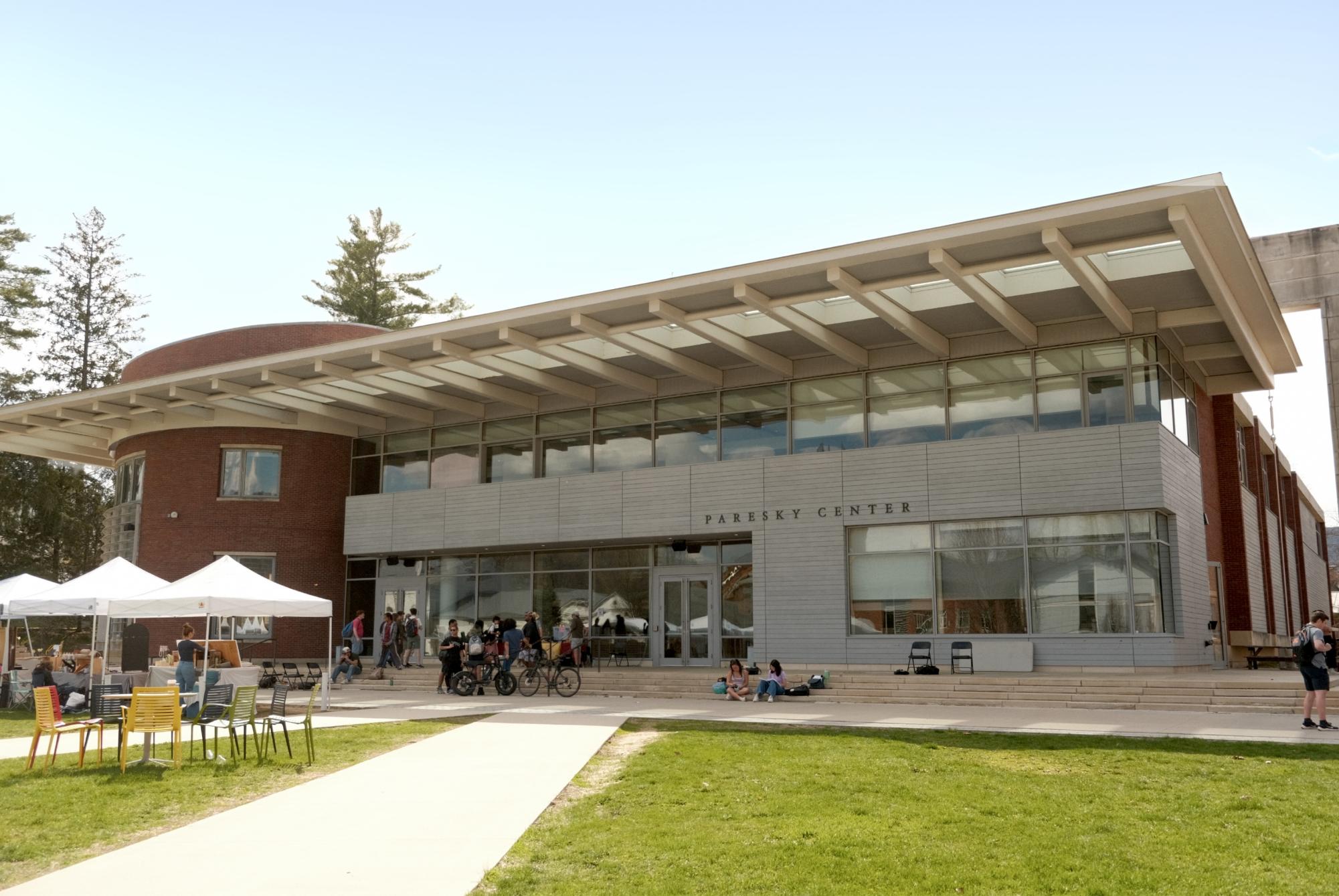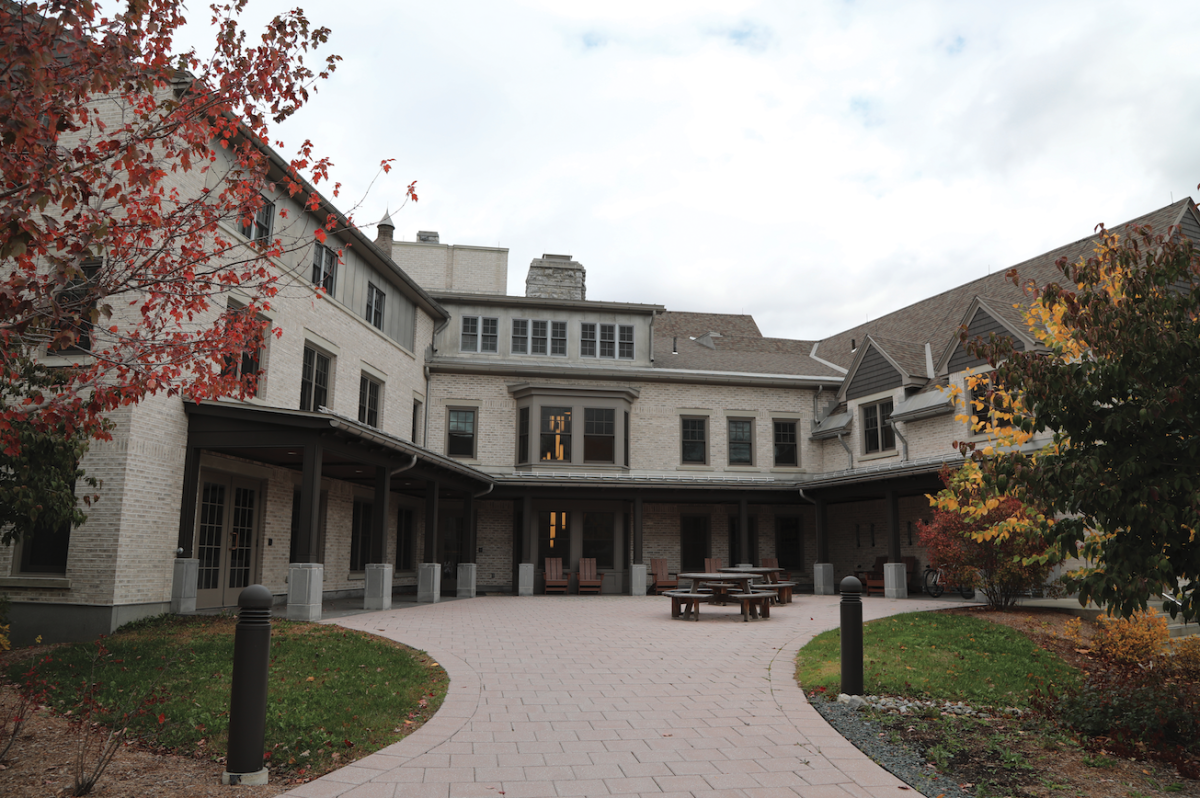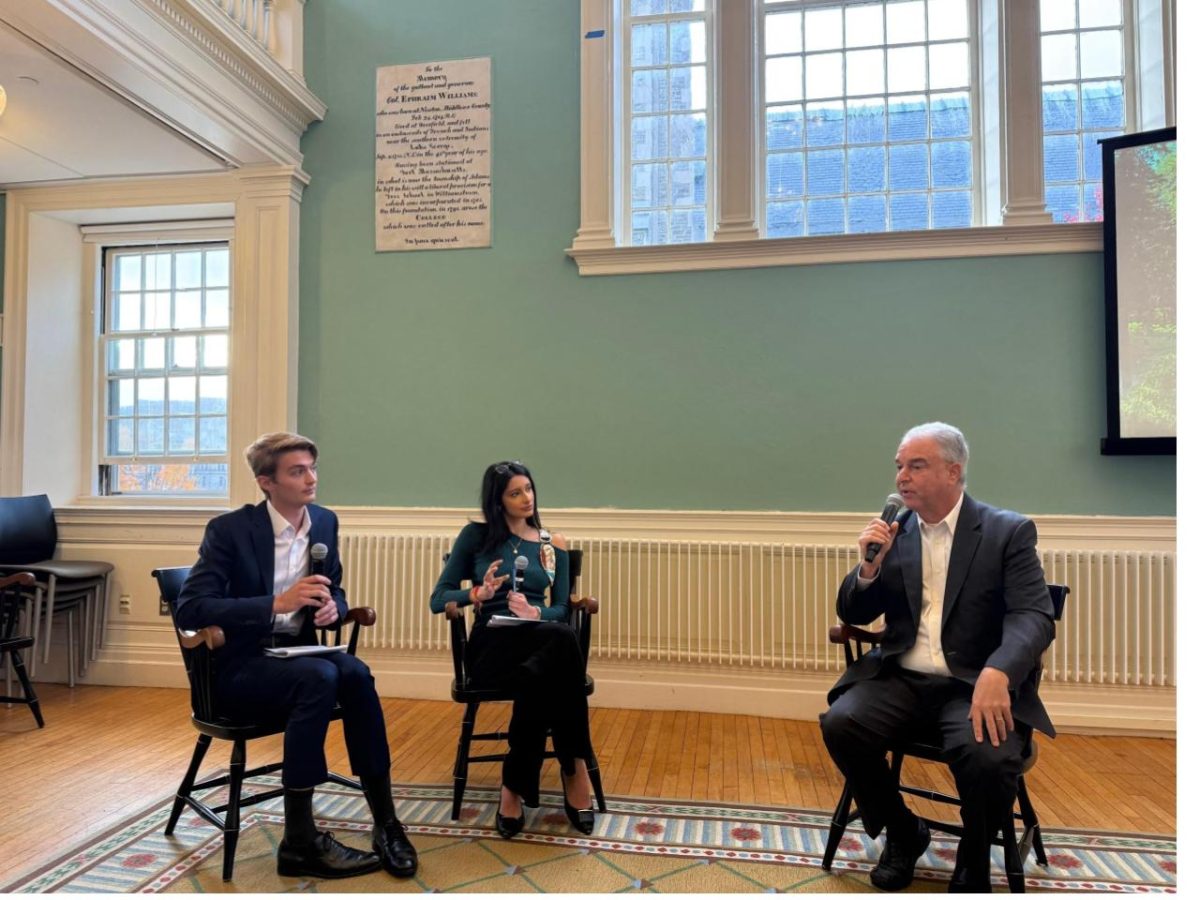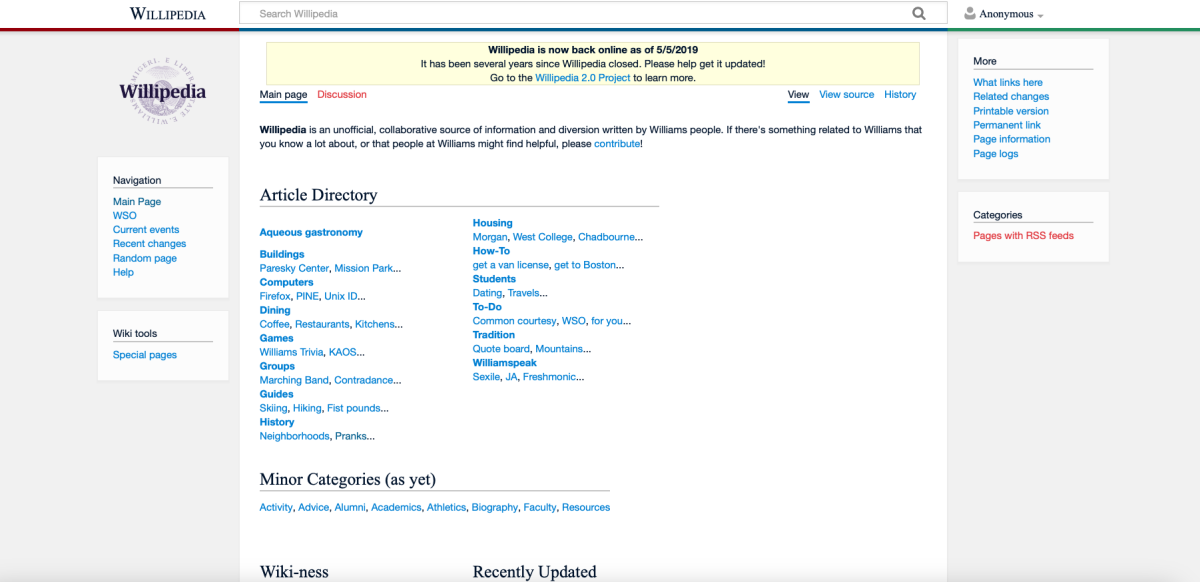
The Williams Student Union (WSU) announced a slate of new initiatives and proposals, including student life improvements and internal reforms, in an April 22 spring newsletter.
The newsletter announced an increase to next year’s Facilitators for Allocating Student Taxes (FAST) funding, a stricter attendance policy for WSU representatives, and new dedicated scribe and treasurer positions for the organization. It also outlines proposals to improve access to prescription drugs and implement a system through which students can rank their favorite dining hall food, allowing Dining Services to consider student feedback while designing its menus.
Despite its ongoing advocacy, WSU representatives said that it is up to the College to implement its recommendations. “We don’t really have power to do anything like a government,” WSU representative Michael Okpoti ’27 said in an interview to the Record. “What we … do is liaise between [students] and the administration to make sure that [students’] voices are heard, and then pass on whatever we can and make sure that some changes are driven.”
One concrete change that followed WSU advocacy was the additional $36,000 in funding for Registered Student Organizations (RSOs) for the 2025-26 academic year that comes from an $18 increase in student activity tax — a fee added to tuition that funds FAST’s budget— from the current $198 to $216, according to WSU representative Dylan Safai ’26.
The increased student tax was the result of multiple years of advocacy by WSU to senior staff including President Maud S. Mandel and Dean of College Gretchen Long, according to Safai.
Another initiative seeks to tune all of the pianos on campus over the upcoming summer. The initiative has received input from the Office of Finance and Operations, as well as Facilities and the dean’s office. “The budget for piano tuning came out of my office,” Long wrote in an email interview to the Record. “I hope this will help expand options for fun and community building — especially during the winter months.”
Most of the initiatives shared in the newsletter are currently works in progress. “A lot of what we sent out in the newsletter … we’re currently working on or advocating to get,” WSU representative Shoshanna Hemley ’25 said in an interview with the Record.
For example, Hemley noted that she has worked with the Office of Intimate Violence Prevention Response (OIVPR) to better connect the office with RSOs. “I’m spearheading … the collaboration that we are doing with [Director of OIVPR] Elizabeth Rogers,” Hemley said. “I’m currently working to start a project to change all RSO constitutions to require guidelines for the clubs for dealing with violations of community guidelines, especially and specifically instances of sexual assault.”
Okpoti, meanwhile, has been working to add water fountains to every dorm hall. While he and the WSU have already successfully advocated for the installation of a water fountain in Mission, Okpoti said his broader goal may take more than several semesters due to logistical challenges. Vice President for Finance and Operations Mike Wagner said he is also involved in the project, along with members of Facilities and the Zilkha Center for the Environment.
“Some of the buildings on campus are very old … [so] you’re going to have to do all kinds of refurbishments and renovations…before you can put that kind of facility in the building,” Okpoti said. “It’s something that’s possible, but it’s not set in stone that [it’s] going to be done yet.”
The WSU has also established year-long scribe and treasurer positions and enacted new bylaws requiring representatives to publish written explanations for all absences on the WSU website. Bylaws, according to the WSU constitution, “qualify and/or elaborate matters pertaining to the internal conduct of The Union not specified in the Constitution.”
The newsletter explains that the scribe will be responsible for publishing meeting agendas and notes on the WSU website within 24 hours of each meeting, while the treasurer will manage the WSU’s budget and handle funding requests to FAST.
The WSU’s new attendance bylaws stipulate that members will receive a warning after missing two meetings and face expulsion after missing four.
The goal of the reforms is to increase transparency, organization, and accountability by giving WSU a more rigid internal structure, according to WSU representative Ahmad Irfan ’28.
Safai said that the implementation of new internal rules represents an increased pace of reform for WSU. “We’d only had three bylaws passed in the five years since the WSU was founded … So the past five or six in one semester is an incredible undertaking, and it took a lot of hard work,” Safai said.
Safai, though, remains optimistic about WSU’s ability to get more done. “We’re just getting started,” Safai said. “This was a semester of hard work, but it’s just the first semester in a series of semesters where we want to implement changes.”
“We’ve been tabling a lot more, we’ve been hearing student concerns a lot more… just trying to get our name, our image out there so that students know that they can turn to us if they ever have anything that they’d like to elevate to admin,” he said.
Correction: A previous version of this article incorrectly attributed a quote from Michael Okpoti ’27 to Vice President for Finance Operations Mike Wagner. The article was updated at 2:24 a.m. on April 30 to reflect this change.














